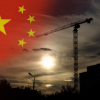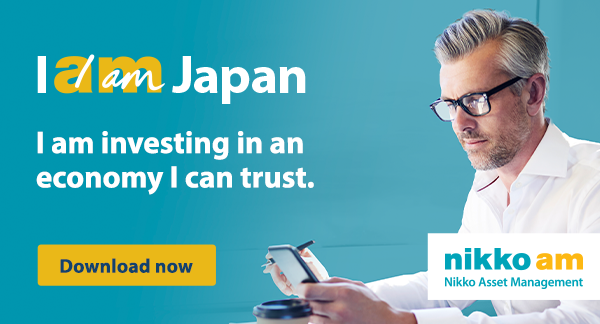Insights
New Zealand Equity Monthly – September 2023(Englisch)
New Zealand equities continued to see weakness in September, with the market falling by approximately 3%. This partly reflected broader volatility given that the Australian market declined by about 4% and US equities saw a fall of approximately 5%. More notably on a domestic level, however, the market’s direction was affected by the key August round of corporate results. The August reporting season is the most significant for New Zealand given that many companies release their full-year results and some firms with December fiscal year-ends release their half-year results during the month.
Harnessing Change - Monthly Insights: Asian Equity-September 2023(Englisch)
With oil markets closing in on US dollar (USD) 100 per barrel and US bond yields reaching 16-year highs, one could be excused for being struck by a bout of conservatism. With valuation dispersions again back to all-time highs, we contend that the risk-reward looks more favourable when taking a long-term view of Asia.
“Bold and fundamental changes” to Japan’s NISA a positive driver for Japanese equities(Englisch)
Changes to Japan’s domestic tax-free savings scheme – the Nippon Individual Savings Account (NISA) –are expected to deliver an increased flow into mutual funds both international and domestic, and attract a younger generation of investors in one of the world’s most liquid markets in terms of household wealth.
Global Investment Committee’s outlook(Englisch)
We expect occasionally volatile, but positive trends for the global economy, financial system and markets in each of the next four quarters. Regionally, we prefer the European and Pacific Ex-Japan markets for the 4Q, and also Japan’s on a 12-month view.
Nikko Asset Management’s investment experts delve into the risks and opportunities arising from China’s flagging economy and its weakening property sector.
Shift to secular growth could be a “real deal” moment for Japan equities(Englisch)
The current rise in Japanese equities could have legs, setting it apart from other phases in the previous 30 years which often led to disappointment. Japan’s shift from cyclical to secular growth, highlighted by labour shortages fuelling a rise in wages, is a development that is setting the equity market on a fundamentally different trajectory. We expect wage developments, as a factor affecting both consumption and inflation trends, to help determine further gains for Japan equities.
Japan’s macro picture is positive, but focus on corporate earnings(Englisch)
It isn’t wise to dwell on the details of any countries’ newly published macroeconomic data, but the overall outlook for Japan is slow but steady economic growth. However, as the last few decades have shown, such should not discourage investors if the powerful corporate governance trends and technological advancements continue as we believe they will.
Balancing Act-Monthly insights: Multi-Asset Team-September 2023(Englisch)
The markets are pricing “higher for longer” with US Treasury 10-year yields pressing above their October 2022 highs, tempering enthusiasm across global equities into neutral sentiment territory. As inflation pressures continue to ease without tipping the jobs market into recession, the US Federal Reserve still looks on course to achieve a soft landing. However, not surprisingly the markets remain slightly on edge as the top in yields cannot yet be called for certain.
On the Ground in Asia-Monthly Insights: Asian Fixed Income-August 2023(Englisch)
Indian and Indonesian bonds are expected to fare relatively better than their regional peers, supported by their attractive carry, positive macro backdrop and policy credibility. As for currencies, expectations that US interest rates may have reached their peak could weigh on US dollar sentiment and favour Asian currencies in return.
Harnessing Change - Monthly Insights: Asian Equity-August 2023(Englisch)
While regional markets understandably retained its focus on the economic weakness in China, we believe that the fear gripping the markets belies the region’s long-term sustainable return and positive change opportunities. The challenges that China must overcome are not insurmountable and certainly do not translate to systematic or social instability risk, in our view.
Japan’s long-term value is getting unlocked(Englisch)
There’s more to Japan’s renaissance than relatively inexpensive valuations. Companies have become more receptive to corporate reform and shareholder engagement; Japan’s services sector is benefitting from a resumption in tourism; and, in Japan, inflation is settling at supportive levels after years of deflation.
Focusing on the knowns in an era of unknowns(Englisch)
We are currently in the midst of a regime change to a world of slower growth, periodic bouts of inflation and technological transformation. While much of what the future holds is unknowable, such as the impact of artificial intelligence, there are other clear long-term trends that can help guide investors: the path to clean energy, growing healthcare requirements and the re-emergence of the travel industry.
India’s transformational trends
Structural reforms, investments in energy transition, rising consumption and vast improvement in India’s infrastructure, productivity and manufacturing sector are expected to bolster the country’s next phase of economic growth and development.
Climate change solutions in Japan(Englisch)
The climate change crisis we are witnessing presents both challenges and opportunities. Focusing on the latter from an investment perspective, in our view asset managers are in a position to help facilitate society’s goals of reducing GHG emissions and decarbonising.energy
Five Years of Disruptive Innovation(Englisch)
To mark five years since the launch of the Nikko AM ARK Disruptive Innovation Fund, Nikko AM and ARK Invest take a look at the five primary innovation platforms, their achievements over the last five years, and our expectations for them during the next five to ten years.
Navigating Japan Equities: Monthly Insights from Tokyo (September 2023)(Englisch)
This month we take a closer look at Japan’s 2Q GDP surge and analyse the factors that could offset a potential slowdown in exports; we also assess why the markets are less perturbed by a weak yen compared to a year ago and discuss the prospects of the currency strengthening in the months ahead.
Finding opportunities from geopolitical change in Asia(Englisch)
A changing geopolitical landscape in Asia coupled with a desire to partially diversify away from China-based supply chains is creating opportunities in India and Indonesia.
Japan’s “Show Me the Money” corporate governance: 2Q profit margins near record high(Englisch)
The just-released 2Q CY23 data on aggregate corporate profits in Japan was somewhat mixed, but the overall corporate recurring pre-tax profit margin rebounded near its record high on a four-quarter average.
Balancing Act-Monthly insights: Multi-Asset Team-August 2023
The economic wheels continue to turn forward, surprising many given that the Federal Reserve lifted the overnight target rate to 5.5%, a level not seen since 2001. It is also above the top rate of 5.25% seen back in 2006–2007, before rate cuts ultimately failed to prevent the Global Financial Crisis. This time around, balance sheets are much stronger in the private sector and so are regulations. And now, the combined fiscal impulse and investment wave may keep pushing recession risk further away.
New Zealand Fixed Income Monthly – July 2023(Englisch)
Recent data demonstrate that declining demand is now a major concern for companies as recent rate hikes by the Reserve Bank of New Zealand increasingly constrain economic activity.
New Zealand Equity Monthly – July 2023(Englisch)
The devastation from the tropical cyclone and flooding that struck New Zealand’s North Island in February 2023 was a reminder of the increasing need to mitigate extreme weather events and to take stock after they strike.
On the Ground in Asia-Monthly Insights: Asian Fixed Income-July 2023(Englisch)
We retain our preference for Indonesian government bonds and for currencies, we believe that greater support for the renminbi from Chinese policymakers should remove a near-term headwind for currencies in the region. We take a more cautious view towards risk in the near-term due to a slightly weaker macro backdrop and uncertainties ahead which make the valuation of Asia investment grade credit look slightly stretched versus both historical levels as well as developed market spreads.
Harnessing Change - Monthly Insights: Asian Equity-July 2023(Englisch)
With the Chinese economy on the brink of deflation, the timing of the Chinese government’s recent pro-growth directives was a very welcome signal. If carried out, they can lead to structural changes that can potentially lead to an improvement in consumer confidence and growth in the Chinese economy, in our view.
Navigating Japan Equities: Monthly Insights from Tokyo (August 2023)(Englisch)
Although the Bank of Japan tweaked its policy in July, we discuss why the move may have been a compromise given expectations the central bank will wait for more concrete signs of inflation before taking a more significant step; we also describe why the rise by Japanese equities could have “legs” this time.
Balancing Act-Monthly insights: Multi-Asset Team-July 2023(Englisch)
While market positioning has shifted towards a more constructive outlook, the macroeconomic mood has not. Rather, persistent upside pressures in equity markets have forced investors back into the market so they do not fall too far behind benchmarks and their peers.
Asset TV: Climate transition – threats and opportunities(Englisch)
Nikko AM’s Head Portfolio Manager – Core Markets, Steven Williams, recently participated in Asset TV’s Masterclass on the threats and opportunities for investors in the climate transition. Here are the highlights of Steven’s contribution to the discussion.
We remain constructive on relatively higher-yielding government bonds amid a supportive macro backdrop. Our favourable view of higher-yielders is further grounded on the view that lower-yielding government bonds will be more vulnerable to volatility in UST bonds.
New Zealand Fixed Income Monthly – June 2023(Englisch)
The Reserve Bank of New Zealand indicated in May that the current interest rate hiking cycle is by and large complete, with the Official Cash Rate (OCR) having peaked at its current level of 5.5%. The central bank also signalled that it is unlikely to cut the OCR in the near future, stating its intention to keep interest rates at a restrictive level for some time in order to keep inflation under control. In addition, New Zealand has a general election scheduled for 14 October 2023, further reducing the likelihood of near-term moves in the OCR.
With inflationary issues subsiding across most of Asia, many regional central banks are now holding interest rates steady, if not cutting rates in the case of China. The US, meanwhile, is still warning of further rate hikes despite some overall softening in data. Of more concern to us is what China does next.
Exploring Asia’s investment megatrends: consumption, healthcare and net zero(Englisch)
Right now, three megatrends are widely prevalent across Asia which look like significant drivers of investment growth for many years to come. These megatrends are consumption, healthcare and the net zero transition.
Navigating Japan Equities: Monthly Insights from Tokyo (July 2023)(Englisch)
As a virtuous inflation cycle helps boost stocks, this month we focus on how labour shortages could nudge Japan away from a deflationary mindset; we also assess the BOJ under a new governor, who has said that monetary policy surprises could be unavoidable.
Capital efficiency initiative in Japan highlights market opportunity(Englisch)
Japan’s corporate governance reform started nearly a decade ago is an ongoing process, but it received a boost from the Tokyo Stock Exchange’s latest initiative in January. The latest chapter in corporate governance reform coupled with Japan’s break from a deflationary mindset and the full re-opening of the economy after the pandemic are expected to create a more favourable investment environment for Japanese equities.
Global Investment Committee’s outlook(Englisch)
We expect occasionally quite volatile, but positive trends for the global economy, financial system and markets in each of the next four quarters. Regionally, we prefer the European market for the next two quarters, and also include Japan’s on a 9–12-month view.
Balancing Act-Monthly insights: Multi-Asset Team-June 2023(Englisch)
The divergence in growth outlook reflected in equities continues to widen, as secular growth in the form of tech and artificial intelligence (AI) developments appears to have the upper hand in determining the overall market direction. This is evident with the tech sector being up (and Japan, for different reasons) while most other sectors and geographies are down over the month. This defies conventional wisdom—that earnings can continue to grow into a recession, but these disruptive developments are indeed significant, and perhaps this is the right directional prognosis should a recession prove to be shallow.
Why investors should consider increasing their exposure to Japan(Englisch)
A stable political backdrop is just one of several key considerations supportive of investors increasing their exposure to Japanese equities, in our view. We believe that reforms to both its corporate governance structure and the configuration of its stock market have made Japan a more attractive investment destination for global investors. The removal of COVID-19 inbound travel restrictions is expected to provide Japan with an additional economic boost, with tourism further benefitting from the yen’s relative weakness.
We remain constructive on relatively higher-yielding Philippine, Indian and Indonesian government bonds, on the back of the relatively supportive macro backdrop for these countries. As for currencies, we expect the Thai baht and Indonesian rupiah to continue outperforming regional peers.
New Zealand Fixed Income Monthly – May 2023(Englisch)
In an encouraging sign for New Zealand, the Reserve Bank of New Zealand (RBNZ) signalled in May that the Official Cash Rate is likely to have peaked at its current level of 5.5%. The RBNZ appears to have shifted its focus from inflationary pressures to factors that will drive inflation down. Factors cited include weak global growth, easing inflationary pressures among New Zealand’s trading partners and reductions in supply chain constraints.
New Zealand Equity Monthly – May 2023(Englisch)
The Reserve Bank of New Zealand’s decision to have the Official Cash Rate (OCR) peak at 5.5% surprised the market, which had started to price in a peak of 5.75% or 6.0%. The lower-than-expected peak in the OCR is positive for equities as higher interest rates dampen spending by consumers and businesses.
On-the-ground view of post-COVID China(Englisch)
A recent trip to China offered first-hand observations of the country’s technological advancement, changing consumer patterns and new social norms as the world’s second largest economy moves on from the pandemic.
As the developed world continues to struggle with inflation and a lack of growth, Asia stands out as the bright spot, with inflation well in check and monetary cycles peaking ahead of the West. Growth in Asia is also expected to outperform the West over the next few years, reversing a decade-long trend of developed world growth outperformance.
Navigating Japan Equities: Monthly Insights from Tokyo (June 2023)(Englisch)
This month we discuss the factors behind the Nikkei’s rise to a 33-year high; we also assess Japan’s opportunity to re-invent itself as a technology hub with leading global chipmakers bringing investments and manufacturing to its shores.
As the green bond market diversifies, Sustainability-Linked Bonds (SLBs) – which are linked to an issuer’s broader sustainability performance – have garnered significant investor attention and scrutiny. While the concept is compelling, concerns have arisen that their sustainable targets are sometimes easy to beat and therefore easy to game. Structural improvements for SLBs should help make it a more attractive sustainable investment class within the ESG universe.
Global Equity Quarterly (Q1 2023)(Englisch)
At times of stress, we believe that it makes sense for investors to reach for something that has recently provided comfort. Our view is that that is exactly what we have seen in Q1, as banking stock volatility has led investors back into the technology sector. Q1 is now behind us though and is often a time of the year characterised by mean reversion such as we saw in 2022.
Global Unconstrained Bond Strategy Q2 2023 outlook(Englisch)
We present our Q2 2023 outlook for the Global Unconstrained Bond Strategy which incorporates our core markets, emerging markets and global credit views.
The long-held theme of this report (since 2006) that profit margins remain on a structural uptrend, despite sluggish domestic GDP growth, still holds and domestic and international investors finally realise that Japanese corporations are delivering solid profits and shareholder returns, with the increased expectation that such will likely continue over the intermediate term.
Future Quality Insights -May 2023-A bridge over troubled waters(Englisch)
Life is different in the post-pandemic world. Equity markets and economies are different too; geopolitics have deteriorated and barriers to trade have increased while the threat of global warming looms ever larger. In this short essay, we attempt to bring some perspective to this while giving a view on where we are in markets today and what might happen next.
Exploring fast-growing Asian REITs
Asian REITs continue to be one of the fastest growing asset classes in the region, offering decent yields, a sustainable income stream and exposure to the region’s biggest landlords.
China’s re-opening and supportive policy tone may continue to provide a critical counterweight to global macro weakness. Macro and corporate credit fundamentals across Asia ex-China are also expected to stay robust.
New Zealand Fixed Income Monthly – April 2023(Englisch)
As New Zealand’s current tightening cycle started about 19 months ago, it can already be said to be mature. It also follows that the full impact of the monetary policy decisions taken so far should now be building in the economy.
Balancing Act-Monthly insights: Multi-Asset Team-May 2023(Englisch)
Currently, we believe that valuations look stretched (mainly in the US) and volatility too low to justify that a new bull market is at hand, given the plethora of risks. We remain constructive on China's recovering demand and new sources of tech growth, but we are cautious for now for the relative complacency that appears not to adequately discount the eventually weaker economic data ahead and now renewed regional bank stress, and perhaps a US debt ceiling battle in the making.























































